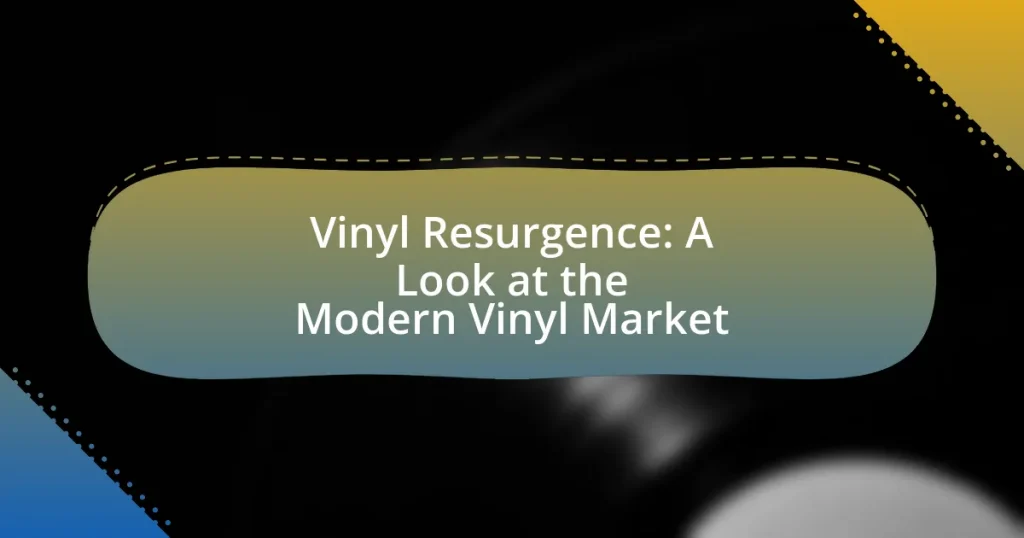Session musicians are professional instrumentalists and vocalists hired for recording sessions and live performances, often without receiving credit. They play a crucial role in enhancing music production by providing specialized skills and versatility, contributing to the success of various genres. The article explores the significance of session musicians, their contributions to the music industry, the skills required for success, and the challenges they face in gaining recognition. It also highlights notable session musicians throughout history and discusses how technological advancements and social media have impacted their visibility and opportunities.

What are Session Musicians and Why are They Important?
Session musicians are professional instrumentalists or vocalists hired to perform in recording sessions or live performances, often without being credited as part of the main act. They are important because they provide specialized skills and versatility that enhance the quality of music production, allowing artists to achieve their creative vision. For instance, many hit records feature session musicians who contribute unique sounds or techniques that the primary artists may not possess, thereby elevating the overall musical composition. Their contributions are crucial in various genres, as they help create polished and commercially viable music, often leading to greater success for the projects they work on.
How do Session Musicians contribute to the music industry?
Session musicians contribute to the music industry by providing specialized instrumental and vocal performances that enhance recordings and live performances. These skilled artists bring versatility and expertise, allowing producers and artists to achieve high-quality sound across various genres. For instance, session musicians often play on tracks for major artists, contributing to chart-topping hits; a notable example is the Wrecking Crew, a group of session musicians who played on numerous iconic songs in the 1960s and 1970s. Their contributions are essential for the production of polished music, enabling artists to focus on songwriting and performance while ensuring that the instrumental aspects are professionally executed.
What roles do Session Musicians play in recording sessions?
Session musicians primarily provide instrumental and vocal performances during recording sessions, contributing their expertise to enhance the overall sound of a track. They are often hired for their proficiency in specific instruments or vocal styles, allowing producers and artists to achieve a desired musical quality. For instance, session musicians can play guitar, drums, keyboards, or provide backing vocals, which adds depth and professionalism to recordings. Their contributions are crucial in genres ranging from pop to jazz, where the right sound can significantly impact a song’s success.
How do Session Musicians enhance the quality of music production?
Session musicians enhance the quality of music production by providing specialized skills and versatility that elevate the overall sound. Their extensive experience allows them to adapt to various genres and styles, ensuring that the music aligns with the artistic vision of the producer and artist. For instance, a study by the Berklee College of Music highlights that session musicians often possess advanced technical abilities and a deep understanding of music theory, which contributes to more polished and professional recordings. This expertise enables them to deliver high-quality performances that can significantly improve the final product, making the music more engaging and appealing to listeners.
What skills and qualities define a successful Session Musician?
A successful session musician is defined by exceptional technical proficiency, adaptability, and strong communication skills. Technical proficiency allows session musicians to perform a wide range of musical styles and genres with precision, which is essential in diverse recording environments. Adaptability enables them to quickly learn new material and adjust to different artistic visions, ensuring they can meet the specific needs of various projects. Strong communication skills facilitate effective collaboration with producers, artists, and other musicians, fostering a productive and creative atmosphere. These qualities are critical in the fast-paced and often high-pressure world of session work, where the ability to deliver high-quality performances on short notice is paramount.
What technical skills are essential for Session Musicians?
Session musicians require a diverse set of technical skills, including proficiency in multiple musical instruments, sight-reading ability, and strong improvisational skills. Proficiency in various instruments allows session musicians to adapt to different genres and styles, enhancing their versatility. Sight-reading ability is crucial as it enables them to quickly interpret and perform written music during recording sessions. Strong improvisational skills are essential for creating spontaneous musical ideas that fit the context of a session, often leading to innovative contributions. These skills collectively ensure that session musicians can meet the demands of various projects efficiently and effectively.
How do interpersonal skills impact a Session Musician’s effectiveness?
Interpersonal skills significantly enhance a session musician’s effectiveness by facilitating collaboration and communication within diverse musical environments. Effective communication allows session musicians to understand and interpret the artistic vision of producers and other musicians, leading to more cohesive performances. For instance, a study published in the Journal of Music Therapy highlights that musicians with strong interpersonal skills are better at adapting to group dynamics, which is crucial in studio settings where quick adjustments are often necessary. Additionally, the ability to build rapport fosters a positive working atmosphere, encouraging creativity and innovation, ultimately resulting in higher-quality recordings.
Why are Session Musicians often considered unsung heroes?
Session musicians are often considered unsung heroes because they provide essential musical contributions to recordings and live performances without receiving the recognition typically afforded to lead artists. These skilled professionals possess a high level of versatility and expertise, allowing them to adapt to various genres and styles, which enhances the overall quality of the music produced. For instance, many hit songs feature session musicians who play instruments or provide backing vocals, yet their names often remain uncredited on album covers. This lack of visibility contrasts sharply with the fame of the primary artists, leading to their classification as unsung heroes in the music industry.
What challenges do Session Musicians face in gaining recognition?
Session musicians face significant challenges in gaining recognition primarily due to their behind-the-scenes roles in the music industry. Unlike lead artists, session musicians often lack public visibility, which diminishes their chances of being acknowledged for their contributions. Additionally, the music industry tends to prioritize branding and marketing of front-facing artists, overshadowing the essential work of session musicians who provide instrumental and vocal support.
Research indicates that many session musicians work on a freelance basis, making it difficult to establish a consistent public identity or fan base. According to a study by the Musicians’ Union, 70% of session musicians reported feeling undervalued and unrecognized for their work, highlighting the systemic issues that contribute to their lack of visibility. This combination of factors creates a challenging environment for session musicians to achieve the recognition they deserve.
How does the public perception of musicians differ from that of Session Musicians?
Public perception of musicians often elevates them to celebrity status, while session musicians are typically viewed as behind-the-scenes contributors. This distinction arises because mainstream musicians frequently receive recognition for their performances, branding, and public personas, leading to a more prominent place in popular culture. In contrast, session musicians, who provide instrumental and vocal support for recordings and live performances, usually remain anonymous and are less recognized by the general public, despite their critical role in the music industry. For example, a study by the American Federation of Musicians highlights that while session musicians contribute significantly to hit records, they often lack the visibility and acclaim afforded to lead artists, reinforcing the perception gap between the two groups.

What is the history of Session Musicians in the music industry?
Session musicians have played a crucial role in the music industry since the early 20th century, providing instrumental and vocal support for recording artists. Initially, in the 1920s and 1930s, these musicians were often hired for their versatility and skill, contributing to the burgeoning recording industry as jazz and popular music gained prominence. By the 1950s and 1960s, the demand for session musicians surged, particularly in Los Angeles, where groups like The Wrecking Crew became synonymous with the sound of iconic albums from artists such as The Beach Boys and Frank Sinatra.
The 1970s and 1980s saw the rise of session musicians in various genres, including rock, pop, and country, with notable figures like session guitarist Larry Carlton and drummer Jim Keltner becoming highly sought after. The advent of digital recording technology in the 1990s further transformed the role of session musicians, allowing for remote collaborations and expanding their influence across global music markets. Today, session musicians continue to be integral to the production of music, often working anonymously behind the scenes, yet their contributions remain vital to the success of countless recordings.
How has the role of Session Musicians evolved over time?
The role of session musicians has evolved significantly from the mid-20th century to the present day. Initially, session musicians primarily provided instrumental support in recording studios, often working anonymously on tracks for various artists, which allowed producers to create polished recordings without the need for the original artists to perform live. Over time, with the rise of digital technology and home recording, the demand for session musicians shifted; they began to collaborate remotely and contribute to a wider range of genres, including film scores, video game soundtracks, and independent projects.
This evolution is evidenced by the increasing recognition of session musicians in credits and awards, highlighting their contributions to popular music. For example, the Recording Academy has acknowledged the work of session musicians through specific categories in the Grammy Awards, reflecting their integral role in the music industry. Additionally, the advent of platforms like SoundBetter has enabled session musicians to market their skills directly to artists worldwide, further transforming their role from anonymous contributors to recognized collaborators.
What significant changes have occurred in the recording industry that affect Session Musicians?
Significant changes in the recording industry that affect session musicians include the rise of digital technology and home recording, which have reduced the demand for traditional studio musicians. The proliferation of affordable recording software and equipment allows artists to produce music independently, often without hiring session musicians. Additionally, the shift towards streaming services has altered revenue models, leading to lower payments for musicians overall. According to a 2021 report by the Music Industry Research Association, session musicians now face increased competition from virtual instruments and sample libraries, further diminishing their opportunities in the industry.
How have technological advancements impacted the work of Session Musicians?
Technological advancements have significantly transformed the work of session musicians by enhancing their recording capabilities and expanding their opportunities. Digital audio workstations (DAWs) and high-quality recording software allow session musicians to produce professional-grade music from home studios, reducing the need for traditional studio time. Additionally, advancements in online collaboration tools enable musicians to work remotely with artists and producers worldwide, increasing their reach and flexibility. According to a 2021 report by the International Federation of the Phonographic Industry, the rise of streaming services has also led to a higher demand for diverse musical contributions, allowing session musicians to engage in a broader range of projects than ever before.
What notable Session Musicians have made an impact on music history?
Notable session musicians who have made a significant impact on music history include Hal Blaine, Carol Kaye, and Larry Carlton. Hal Blaine, a drummer, played on over 35 number-one hits in the 1960s and 1970s, contributing to the sound of iconic groups like The Beach Boys and The Mamas & The Papas. Carol Kaye, a bassist, was a key figure in the Wrecking Crew and played on numerous hits, including “Good Vibrations” and “These Boots Are Made for Walkin’.” Larry Carlton, a guitarist, is known for his work on Steely Dan’s albums and has contributed to over 500 records, showcasing his versatility across genres. These musicians exemplify the crucial role session players have played in shaping popular music.
Who are some of the most influential Session Musicians in various genres?
Some of the most influential session musicians across various genres include Hal Blaine, a renowned drummer known for his work on numerous hits in the 1960s and 1970s, contributing to over 35 No. 1 singles. Another notable figure is Carol Kaye, a bassist who played on thousands of recordings, including classics like “Good Vibrations” and “The Beat Goes On.” In the realm of rock, session guitarist Eric Clapton has left a significant mark, collaborating with artists like The Beatles and The Rolling Stones. Additionally, keyboardist Billy Preston, often referred to as the “Fifth Beatle,” played on iconic tracks such as “Get Back.” These musicians have shaped the sound of popular music through their versatile skills and contributions to countless recordings.
What contributions have these musicians made to iconic albums or songs?
Session musicians have significantly contributed to iconic albums and songs by providing instrumental and vocal performances that enhance the overall sound. For example, musicians like Hal Blaine played drums on numerous hits, including The Beach Boys’ “Pet Sounds,” which is often regarded as one of the greatest albums of all time. Similarly, Carol Kaye’s bass lines on Simon & Garfunkel’s “Bridge Over Troubled Water” helped define the song’s emotional depth. These contributions are crucial as they often shape the final product, making the work of session musicians essential to the success of many celebrated recordings.

How can we celebrate and support Session Musicians today?
To celebrate and support session musicians today, individuals and organizations can actively promote their work through social media platforms, highlighting their contributions to various projects. This approach not only raises awareness but also encourages collaboration and networking opportunities. For instance, the Recording Academy has initiatives that recognize the contributions of session musicians, emphasizing their role in the music industry. Additionally, providing fair compensation and ensuring proper credits in album liner notes can significantly enhance their visibility and professional recognition. According to a 2021 survey by the American Federation of Musicians, 70% of session musicians reported that increased visibility directly correlates with more job opportunities.
What initiatives exist to recognize the work of Session Musicians?
Initiatives that recognize the work of session musicians include the establishment of awards such as the Grammy Awards, which feature categories specifically for session musicians, acknowledging their contributions to recorded music. Additionally, organizations like the American Federation of Musicians advocate for the rights and recognition of session musicians, providing resources and support. Furthermore, various music industry events and festivals often highlight the achievements of session musicians through showcases and panels, promoting their visibility within the industry.
How can fans and artists advocate for Session Musicians?
Fans and artists can advocate for session musicians by actively promoting their contributions through social media campaigns and public recognition. For instance, fans can share posts highlighting the work of session musicians on platforms like Instagram and Twitter, using hashtags to increase visibility. Artists can credit session musicians in album liner notes and during live performances, emphasizing their role in the creative process. Research indicates that increased visibility leads to greater appreciation and demand for session musicians, as seen in the rise of platforms like SoundBetter, which connects musicians with session players. This advocacy not only elevates the status of session musicians but also fosters a more inclusive music industry.
What role do social media and online platforms play in promoting Session Musicians?
Social media and online platforms play a crucial role in promoting session musicians by providing them with visibility and opportunities to showcase their skills. These platforms enable session musicians to share their work, connect with potential clients, and build a personal brand. For instance, platforms like Instagram and YouTube allow musicians to post videos of their performances, which can reach a global audience, thereby increasing their chances of being hired for projects. Additionally, social media facilitates networking within the music industry, allowing session musicians to collaborate with artists and producers, further enhancing their career prospects. The rise of digital music consumption has also led to an increased demand for session musicians, making their online presence even more vital for career advancement.
What practical steps can musicians take to become successful Session Musicians?
To become successful session musicians, musicians should focus on developing strong technical skills, networking effectively, and gaining diverse musical experience. Strong technical skills are essential, as session musicians must be proficient in their instrument and adaptable to various musical styles. Networking is crucial; building relationships with producers, artists, and other musicians can lead to more opportunities. Additionally, gaining experience in different genres and settings, such as live performances and studio recordings, enhances versatility and marketability. According to a survey by the American Federation of Musicians, 70% of successful session musicians attribute their success to a robust network and diverse skill set.
How can aspiring Session Musicians build their networks and connections?
Aspiring session musicians can build their networks and connections by actively participating in local music scenes and collaborating with other artists. Engaging in live performances, attending open mic nights, and joining music groups or forums allows musicians to meet industry professionals and fellow musicians. According to a survey by the Music Industry Research Association, 70% of musicians reported that networking at events led to new opportunities. Additionally, utilizing social media platforms like Instagram and LinkedIn to showcase their work and connect with established musicians can further enhance their visibility and networking potential.
What resources are available for developing skills as a Session Musician?
Resources available for developing skills as a session musician include online courses, workshops, and mentorship programs. Online platforms like Coursera and Udemy offer courses specifically tailored to music performance and recording techniques, while organizations such as the Berklee College of Music provide specialized workshops for aspiring session musicians. Additionally, mentorship programs through local music schools or industry associations can connect emerging musicians with experienced session players, facilitating skill development through direct guidance and feedback. These resources are validated by the increasing number of musicians who successfully transition into session work after utilizing such educational opportunities.















